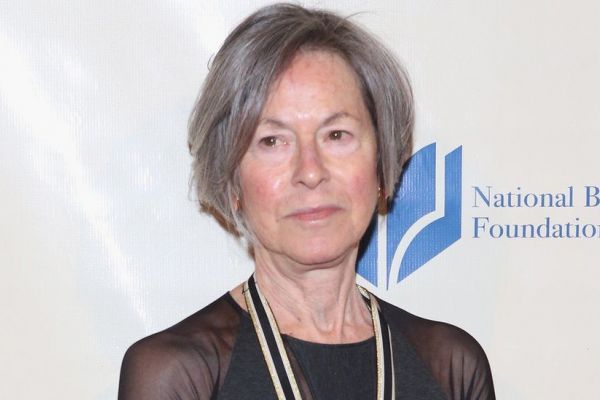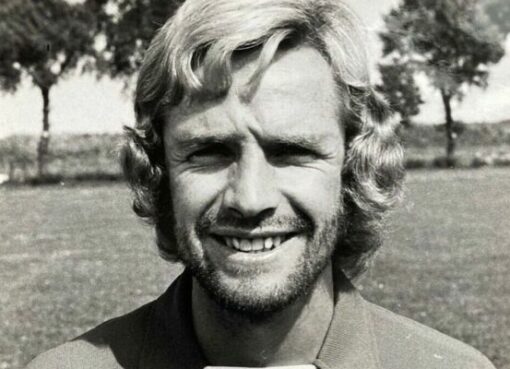Louise Glück, the 80-year-old Nobel winner, was a poet of unwavering candor and vision who skillfully combined philosophical musings, bittersweet memories, funny asides, and classical allusions to create unforgettable depictions of a broken and heartbreaking world.
Her editor at Farrar, Straus & Giroux, Jonathan Galassi, confirmed Glück’s passing on Friday.
Glück crafted a story of trauma, disillusionment, immobility, and longing over the course of more than 60 years of published work, punctuated by brief, fleeting moments of bliss and contentment.
She became the first American poet to win the Nobel Prize in Literature in 2020 when T.S. Eliot was the recipient of the award. The Nobel judges noted that she had “her unmistakable poetic voice that with austere beauty makes individual existence universal.”
Louise Glück received a National Book Award and a Pulitzer Prize
Louise Glück wrote and published articles, a short prose fiction called “Marigold and Rose,” and more than a dozen books of poetry. Her inspiration for her writing ranged from Penelope’s weaving in “The Odyssey” to an unlikely source—the Meadowlands sports complex.
A page or less in length, Glück’s poems are typical examples of her devotion to “the unsaid, to suggestion, to eloquent, deliberate silence.” Inspired by a variety of sources, including Shakespeare, Greek mythology, and Eliot, she challenged and occasionally rejected the notion of love and sex as the “premise of union” in her best-known poem, “Mock Orange.”
For Glück, life was much like a tumultuous love affair: it was destined for sadness, yet it had significance because suffering is our innate state, and it was better than what she thought would come next.
“The advantage of poetry over life is that poetry, if it is sharp enough, may last,” she once said.
Louise Glück was awarded the Pulitzer Prize in 1993 for “The Wild Iris,” a piece that featured a conversation between a merciless god and a struggling gardener. The gardener asks, “What is my heart to you/that you must break it over and over?” In response, the god says, “My poor inspired creation… In the end, you are too little like me to satisfy me.”
Her previous publications included the anthologies “Poems 1962-2012,” “The Seven Ages,” “The Triumph of Achilles,” and “Vita Nova.” In addition to the Pulitzer, she was awarded the National Book Award for “Faithful and Virtuous Night” in 2014 and the Bollingen Prize for lifetime accomplishment in 2001.
Louise Glück received a National Humanities Medal in 2015 for her “decades of powerful lyric poetry that defies all attempts to label it definitively.” She served as the U.S. poet laureate in 2003–2004.
After two marriages and two divorces, Glück and her second husband, John Darnow, had a son named Noah. She was a teacher at many universities, including Stanford and Yale, and she saw her experiences there as a “prescription for lassitude” rather than a diversion from her poetry.
Born in New York City and raised on Long Island, she was descended from Eastern European Jews and the heir to a common invention unrelated to poetry: her father was a co-inventor of the X-Acto knife. Glück would later write that her mother was the family’s “maid-of-all-work moral leader,” the one to whom she sought above all others for feedback on her poetry and stories.
Louise Glück, who saw herself as having been destined to “bear witness,” felt comfortable with written language and considered the English language to be a gift, even an “inheritance.” However, she was so fiercely critical of herself and ambitious as a teenager that she went to battle with her own body.
She experienced anorexia, lost weight to only 75 pounds (34 kg), and was terrified of dying. She made the decision to consult a psychotherapist, which saved her life—creative and otherwise.
Louise Glück told the Washington Square Review in 2015, “I’ve always had this sort of magical-thinking way of detesting my previous books as a way of pushing myself forward.”
And that’s when I understood that I was secretly proud of my accomplishments. Sometimes I would just think, ‘Wow, you haven’t wasted all your time,’ as I piled my books together. However, I was terrified because that pride was a brand-new experience for me, and I immediately assumed the worst.”
Also Read: Why Ed Skrein Left Game Of Thrones And His Family Life





